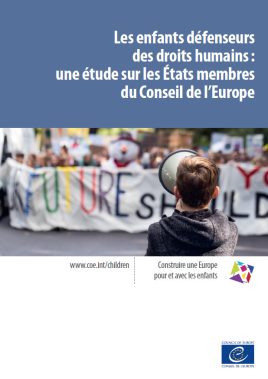
“Children as defenders of human rights: a study on Council of Europe member states” is the title of the first report just published by the pan-European institution on the challenges and responses of states with regard to the recognition, protection, and empowerment of children acting as “child human rights defenders” in member states. 20 out of the 46 countries belonging to the Council of Europe and 85 children (under 18) contributed to the study. The report shows that most of the respondent states “lack a specific regulation on human rights defenders, as they consider that their legislation on children’s rights and child protection also covers child human rights defenders”. However, these regulations do not specifically refer to this category and do not consider all the rights they can claim (including the right to access information, freedom of association, and freedom of assembly). Instead, it would be necessary for these children to have access to mechanisms which protect them from harm resulting from their actions (violence, reprisals, punishment, intimidations offline and online). The report refers to actions for the protection of the environment, the rights of the LGBTQI+ community, and persons with disabilities. School systems can help, but there is reluctance to seek help from them as well as to turn to the police or the judiciary. These children “expect their governments to change their approach towards them, start listening to them and take into account their opinion when making decisions”.
